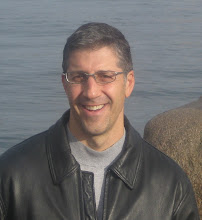
In a stunning blow to the prosecution, jurors took only nine hours to acquit two former Wall Street fund managers in the only major criminal case to emerge from the mortgage meltdown and financial crisis. According to the Los Angeles Times (November 11, 2009) Ralph Cioffi and Matthew Tannin, former mortgage-bond hedge fund managers at Bearn Stearns, were found not guilty of securities fraud. Federal prosecutors who had hoped to pin Cioffi and Tannin as the perpetrators in the downfall of Bear Stearns (now owned by JP Morgan Chase) and set a precedent against other Wall Street bankers were left shaking their heads at both the jurors’ decision and the pace in which it came.
At the heart of the case were the defendants' e-mails, including one in which Tannin said the subprime market "looks pretty damn ugly." Tannin went further to say, "There is simply no way for us to make money -- ever." The prosecution, which hung their case on incriminating emails like these, also showed the jurors emails written days after where both men informed their management that the hedge fund, in fact, could survive. Nevertheless, jurors said the evidence wasn't strong enough and that Cioffi and Tannin were doing everything they could to keep the hedge fund above water. Juror Aram Hong noted, "Just because you're the captain of a ship and it gets hit doesn't mean you should be blamed."
..
With the acquittal of Cioffi and Tannin, federal prosecutors must now determine what if anything they can do to salvage the remainder of their Wall Street cases. Without corroborating data or witnesses to support e-mail evidence, similar cases if tried would likely be found without merit. The fact is America’s investment banking firms were built on strict discipline, sound judgment and prudent risk management. It is these principles that enabled institutions like Bear Stearns and Lehman Brothers to grow and be profitable for more than eighty years. There is no evidence to suggest that fund managers en mass began ignoring their firms’ established trading guidelines or purposefully strayed beyond the boundaries of proper funds management. The truth is that no one could predict the 2008 implosion in the financial markets, nor is any one person responsible for its occurrence. Often times events that occur cannot be foreseen or remedied with our current set of tools or knowledge. When I flew for the US Navy, we used to say that our flight procedures were written in blood. This was because people often died from aircraft malfunctions before proper emergency procedures could be written. I learned one harrowing night after I nearly lost my airplane and crew from an engine fire that I could not extinguish – after properly implementing the existing emergency procedures – exactly what "written in blood" meant. It turns out one of my aircraft’s four engines suffered a catastrophic oil loss which ignited a fire in its turbine section. Fortunately, my crew and I survived the emergency and a new procedure was written for this particular malfunction.
As we consider the financial crisis of 2008, the bigger story emerging might be just how damaging this acquittal could be to the Obama administration. With attempts to pin the blame for the financial crisis on failed Bush policies and scores of "rogue" Wall Street traders, the jurors’ decision that selective e-mail evidence not only was inconclusive, but arguably supportive to the defense, makes the Obama case against Bush’s policies hollow and without merit. With Democratic Party loses for governor in Virginia and New Jersey, the Obama administration can hardly absorb another political setback as it enters the 2010 mid-term elections.
..
With this acquittal of Cioffi and Tannin, perhaps we should stop placing blame for the financial meltdown and subsequent recession on the prior administration or on Wall Street and begin to focus our limited resources on finding ways to emerge from this crisis smarter and stronger. Having proper safety procedures in place to preclude banks and insurance companies from taking on too much risky debt is a great place to start.
With this acquittal of Cioffi and Tannin, perhaps we should stop placing blame for the financial meltdown and subsequent recession on the prior administration or on Wall Street and begin to focus our limited resources on finding ways to emerge from this crisis smarter and stronger. Having proper safety procedures in place to preclude banks and insurance companies from taking on too much risky debt is a great place to start.


